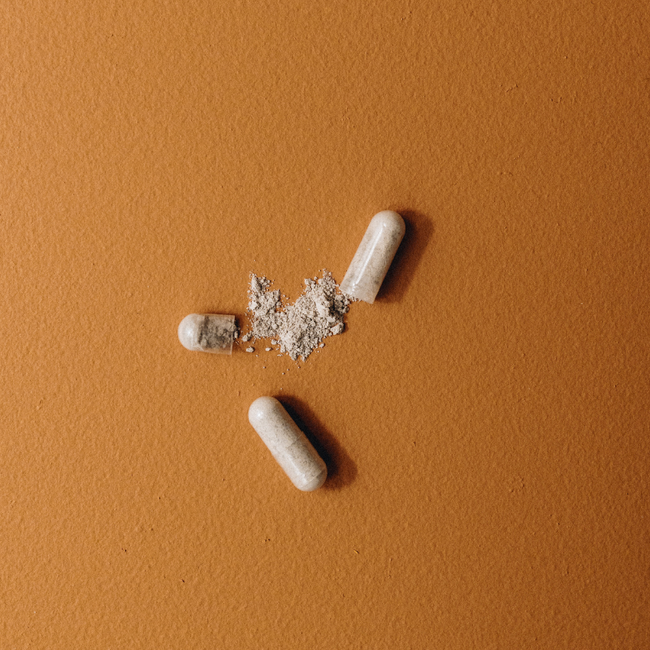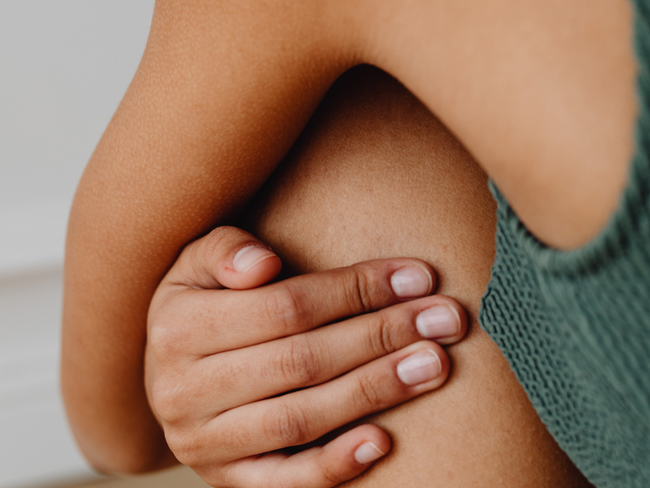L. crispatus :
[1] Grattepanche A. C. E. « Probiotiques gynécologiques en officine ». 21 juin 2022. p. 83.
[2] Mändar R. et al. « Impact of Lactobacillus crispatus-containing oral and vaginal probiotics on vaginal health: a randomised double-blind placebo controlled clinical trial ». Beneficial Microbes [En ligne]. 18 avril 2023. Vol. 14, n°2, p. 143‑152. Disponible sur : < https://doi.org/10.3920/BM2022.0091 >
[3] Gudnadottir U. et al. « The vaginal microbiome and the risk of preterm birth: a systematic review and network meta-analysis ». Sci Rep [En ligne]. 13 mai 2022. Vol. 12, n°1, p. 7926. Disponible sur : < https://doi.org/10.1038/s41598-022-12007-9 >
L. rhamnosus :
[1] Slykerman R. F. et al. « Effect of Lactobacillus rhamnosus HN001 in Pregnancy on Postpartum Symptoms of Depression and Anxiety: A Randomised Double-blind Placebo-controlled Trial ». EBioMedicine [En ligne]. octobre 2017. Vol. 24, p. 159‑165. Disponible sur : < https://doi.org/10.1016/j.ebiom.2017.09.013 >
[2] Ho M. et al. « Oral Lactobacillus rhamnosus GR-1 and Lactobacillus reuteri RC-14 to reduce Group B Streptococcus colonization in pregnant women: A randomized controlled trial ». Taiwan J Obstet Gynecol [En ligne]. août 2016. Vol. 55, n°4, p. 515‑518. Disponible sur : < https://doi.org/10.1016/j.tjog.2016.06.003 >
B.longum subsp. infantis :
[1] Sabaté J.-M., Iglicki F. « Effect of Bifidobacterium longum 35624 on disease severity and quality of life in patients with irritable bowel syndrome ». World J Gastroenterol [En ligne]. 21 février 2022. Vol. 28, n°7, p. 732‑744. Disponible sur : < https://doi.org/10.3748/wjg.v28.i7.732 >
[2] Solovyeva O. I. et al. « Long-term probiotic administration for irritable bowel syndrome: a legal need ». Terapevticheskii arkhiv [En ligne]. 11 octobre 2023. Vol. 95, n°8, p. 679‑685. Disponible sur : < https://doi.org/10.26442/00403660.2023.08.202378 >
Chardon-marie :
[1] « Body Burden: The Pollution in Newborns | Environmental Working Group ». [s.l.] : [s.n.], 2005. Disponible sur : < https://www.ewg.org/research/body-burden-pollution-newborns >
[2] Valková V. et al. « MILK THISTLE (SILYBUM MARIANUM): A VALUABLE MEDICINAL PLANT WITH SEVERAL THERAPEUTIC PURPOSES ». J microb biotech food sci [En ligne]. 3 février 2020. Vol. 9, n°4, p. 836‑843. Disponible sur : < https://doi.org/10.15414/jmbfs.2020.9.4.836-843 >
[3] Khatri D., Devkota H. P., Baruwal Chhetri S. B. « Silybum marianum (L.) Gaertn.: Traditional Uses, Phytochemistry, and Pharmacological Activities | Request PDF ». In : Medical Plants of the Asteraceae Family [En ligne]. [s.l.] : [s.n.], 2022. p. 213‑230. Disponible sur : < https://doi.org/10.1007/978-981-19-6080-2_13 >
[4] Assessment report on Silybum marianum (L.) Gaertn., fructus. [En ligne]. [s.l.] : European Medicines Agency (EMA), 2018. Disponible sur : < https://www.ema.europa.eu/en/medicines/herbal/silybi-mariani-fructus >
[5] Elateeq A. A. et al. « Biotechnological production of silymarin in Silybum marianum L.: A review ». Biocatalysis and Agricultural Biotechnology [En ligne]. 1 octobre 2020. Vol. 29, p. 101775. Disponible sur : < https://doi.org/10.1016/j.bcab.2020.101775 >
[6] Surai P. F. « Silymarin as a Natural Antioxidant: An Overview of the Current Evidence and Perspectives ». Antioxidants [En ligne]. mars 2015. Vol. 4, n°1, p. 204‑247. Disponible sur : < https://doi.org/10.3390/antiox4010204 >
Pissenlit :
[1] Molani-Gol R., Dehghani A., Rafraf M. « Effects of curcumin/turmeric supplementation on the liver enzymes, lipid profiles, glycemic index, and anthropometric indices in non-alcoholic fatty liver patients: An umbrella meta-analysis ». Phytother Res [En ligne]. février 2024. Vol. 38, n°2, p. 539‑555. Disponible sur : < https://doi.org/10.1002/ptr.8051 >
[2] Di Napoli A., Zucchetti P. « A comprehensive review of the benefits of Taraxacum officinale on human health ». décembre 2021. Disponible sur : < https://doi.org/10.1186/s42269-021-00567-1 >
[3] Mahboubi M., Mahboubi M. « Hepatoprotection by dandelion (Taraxacum officinale) and mechanisms ». Asian Pacific Journal of Tropical Biomedicine [En ligne]. janvier 2020. Vol. 10, n°1, p. 1. Disponible sur : < https://doi.org/10.4103/2221-1691.273081 >
[4] Bashir S., Ahmad Peer L. « Phytochemistry, biological properties, economic and ecological importance of Taraxacum officinale, A review ». International Journal of Botany Studies [En ligne]. février 2022. Disponible sur : < https://www.researchgate.net/publication/381846913_Phytochemistry_biological_properties_economic_and_ecological_importance_of_Taraxacum_officinale_A_review >
[5] Wirngo F. E., Lambert M. N., Jeppesen P. B. « The Physiological Effects of Dandelion (Taraxacum Officinale) in Type 2 Diabetes ». Rev Diabet Stud [En ligne]. 2016. Vol. 13, n°2‑3, p. 113‑131. Disponible sur : < https://doi.org/10.1900/RDS.2016.13.113 >
Curcuma :
[1] Govind P. « A REVIEW ON HEPATOPROTECTIVE ACTIVITY OF SILYMARIN ». [s.l.] : [s.n.], 2011. Disponible sur : < https://www.semanticscholar.org/paper/A-REVIEW-ON-HEPATOPROTECTIVE-ACTIVITY-OF-SILYMARIN-Govind/0d17176bf5d197d25abed19186b137e696f63eb5 >
[2] Assessment report on Curcuma longa L. (C. domestica Valeton), rhizoma. [En ligne]. [s.l.] : European Medicines Agency (EMA), 2017. Disponible sur : < https://www.ema.europa.eu/en/documents/herbal-report/draft-assessment-report-curcuma-longa-l-c-domestica-valeton-rhizome-revision-1_en.pdf >
[3] Omosa, Midiwo, Kuete. « Curcuma longa ». In : Medicinal Spices and Vegetables from Africa [En ligne]. [s.l.] : Academic Press, 2017. p. 425‑435. Disponible sur : < https://doi.org/10.1016/B978-0-12-809286-6.00019-4 >
[4] Dehzad M. J. et al. « Effects of curcumin/turmeric supplementation on liver function in adults: A GRADE-assessed systematic review and dose-response meta-analysis of randomized controlled trials ». Complement Ther Med [En ligne]. juin 2023. Vol. 74, p. 102952. Disponible sur : < https://doi.org/10.1016/j.ctim.2023.102952 >























